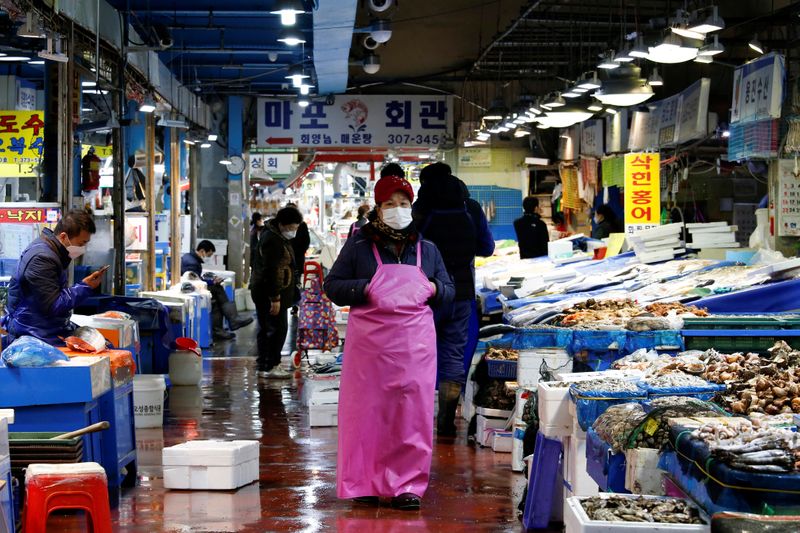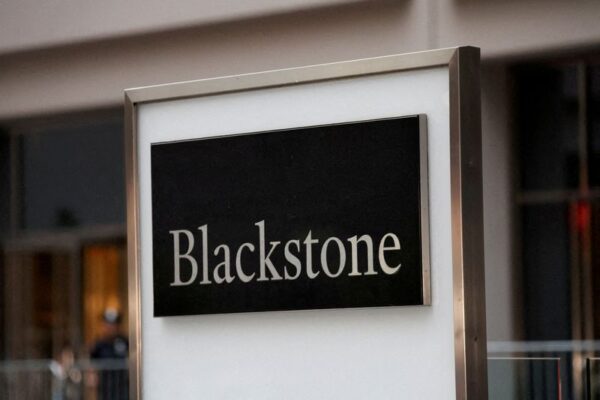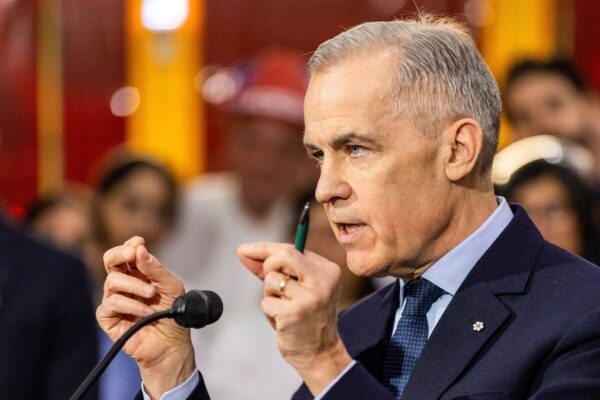South Korea’s inflation hits 9-year high as commodity prices jump
© Reuters. FILE PHOTO: A shopkeeper wearing a mask to prevent contracting the coronavirus waits for a customer at a traditional market in Seoul, South Korea, February 27, 2020. REUTERS/Heo Ran By Joori Roh
SEOUL (Reuters) – South Korea’s consumer inflation accelerated to a more than nine-year high in May, reinforcing calls for gradual monetary tightening, though the increase was mainly due to a low base effect and rises in oil and agricultural prices.
Consumer prices rose 2.6% in May from a year earlier, government data showed on Wednesday, logging the fastest growth since April 2012 and matching a median estimate for a 2.6% increase in a Reuters survey. It grew 2.3% in April.
In May 2020, South Korea fell into deflation as the coronavirus pandemic struck demand and supply chains.
The country’s finance minister said that the impact from the low base and temporary supply disruptions for some agricultural products and oil prices will ease going forward.
“The government will prepare against the inflation risk from materialising, prevent excessive inflation expectations and take measures to stabilise living costs,” Finance Minister Hong Nam-ki said.
Wednesday’s data showed the cost of agricultural, livestock and fisheries products and petroleum surged 12.1% and 23.3%, respectively.
Core CPI, which excluded volatile energy and food prices, came at 1.2% year-on-year, posting the sharpest increase since November 2018.
Month-on-month inflation was 0.1%, slower than a 0.2% increase in April.
Last week, the central bank kept its base rate at a record low of 0.50%, but upgraded its economic outlook and projected high consumer inflation.
The bank’s governor said it is preparing to pull back on the extraordinary stimulus extended during the pandemic in the face of accelerating inflation and a build-up of dangerous imbalances.
“Although the central bank’s policy messaging has turned more hawkish recently, clear signs that COVID-19-related risks are fading are likely to be a prerequisite for policy tightening,” ANZ Research said in a note.
“Our base case is for the Bank of Korea to kick-off policy normalisation in the first quarter of 2022 … we acknowledge that a faster-than-anticipated pace of vaccination could pave the way for the first rate hike to come as soon as the fourth quarter of 2021.”
The BOK currently sees inflation standing at 1.8% for the whole of 2021 and 1.4% for 2022.












 Bitcoin
Bitcoin  Ethereum
Ethereum  Tether
Tether  XRP
XRP  USDC
USDC  Solana
Solana  TRON
TRON  Figure Heloc
Figure Heloc  Lido Staked Ether
Lido Staked Ether